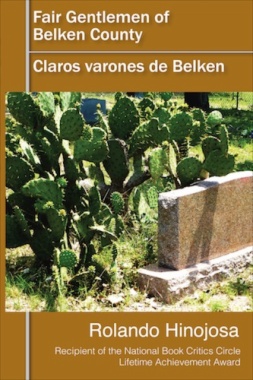

National Book Critics Circle Lifetime Achievement honoree Rolando Hinojosa returns to Klail City—in Belken County along the Texas-Mexico border—to chronicle the lives of its residents. There’s friendship, “which can all of a sudden pop up at any time,” and death, which happens just as frequently. The friendship between cousins Rafe Buenrostro and Jehú Malacara continues through war and peace. After returning from Korea, Rafe—like so many Mexican Americans—is advised to use the GI Bill to learn a trade, like building fishing boats. He and Jehú opt to attend the University of Texas. They get by working in the library and writing papers for other students. When a teaching assistantship becomes available, Rafe loses it because the secretary couldn’t locate him, confirming the fact that some Mexican Americans are sellouts. Death comes knocking, in Korea and South Texas. Their childhood friends, Pepe Vielma and Charlie Villalón, died overseas, as did many other Klail City boys. Closer to home, old Esteban Echevarría is ready to call it quits, saying he won’t live another summer. The sun rises and sets in Klail City. People fall in love, wrangle with God and sell their souls to the devil. Frequently compared to William Faulkner's Yoknapatawpha and Gabriel García Márquez's Macondo, Rolando Hinojosa's fictional Klail City brings to life the Texas-Mexico border area in the twentieth century.
Edición bilingüe